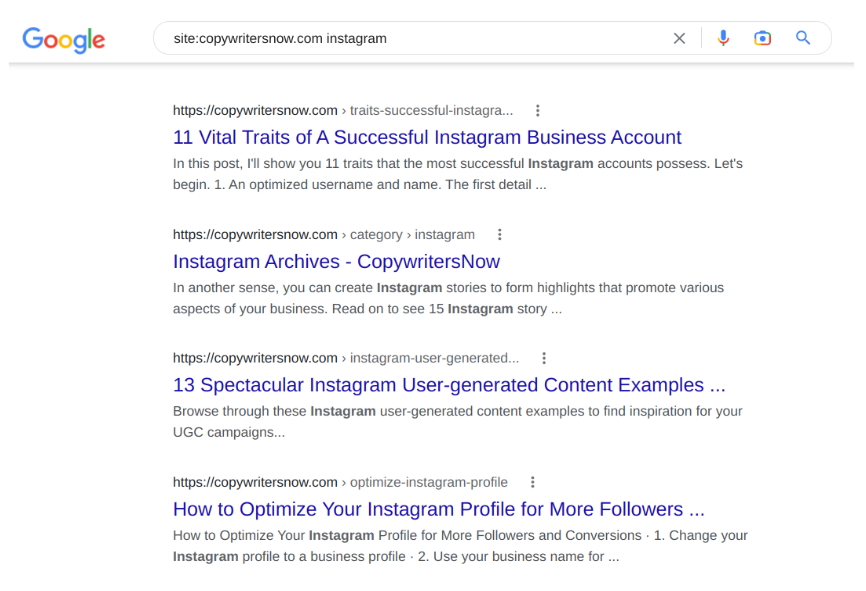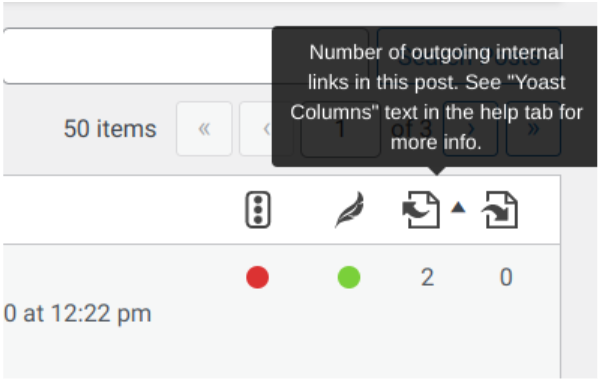Search engine optimization (SEO) takes months before you start getting consistent results. You have to execute on-page and off-page SEO tasks to reach the top of the search ranking pages.
Sadly, keyword cannibalization can ruin the search rankings you’ve worked so hard to achieve.
At what point do you need to take keyword cannibalization seriously?
Once your website grows to hundreds of pages over many years, there’s a high chance some blog posts will target the same keywords. The next step is to find them quickly and fix the issues.
In this short guide, I’ll explain what keyword cannibalization means, how to find the pages involved and steps to fix it.
What Does Keyword Cannibalization Mean?
Keyword cannibalization occurs on your website when two or more pages try to rank for the same keyword and meet the same search intent. In other words, these multiple pages provide similar information, and one can exist without the other.
When there’s keyword cannibalization, both pages will compete for backlinks, internal links and readers. This means you’re effectively fighting yourself.
What are the risks of keyword cannibalization? Here are a few of them:
- Google may be unable to determine which page is the most important.
- The most relevant page can rank lower.
- You can confuse readers who only want to read a single page to solve their problems.
- The two pages may share links which will dilute the authority of both.
- Your rankings can fluctuate.
- Both pages can lose rankings on the search engine result pages (SERPs).
That said, there’s an important point to keep in mind when looking to solve keyword cannibalization issues.
If two pages with different search intent rank on the search results page, that’s not keyword cannibalization because each page will solve different problems for readers.
Let’s consider this example: a keyword like “Samsung galaxy s22 ultra” can have both informational and transactional intent.
By that, I’m saying if you have a page providing details about the smartphone and a product page for buyers, you don’t need to worry about keyword cannibalization even if they rank for the same keywords.
How To Find Keyword Cannibalization
Now, we need to look for similar pages competing for the same keywords. Here are three simple ways to go about it:
1. Use Website Search to Analyze Your Top Keywords
Most websites feature search boxes to help visitors find relevant pages. So, enter your top keywords into the search box and see the results.
For instance, when I entered the search term “Technical SEO” into SEOblog’s search bar, I received 332 results.

Once you have these results, you can go through them to find posts that provide similar information to readers.
2. Search Using Google Site: Search Operator
Google site search operator lets you search a particular website. In this case, you’ll enter “site:yoursite.com keyword” to find the indexed pages on Google for that keyword.

While Google might bring a hundred results, you’ll likely find keyword cannibalization on the first page if it exists. After searching for your top keywords, you should have a list of pages with keyword cannibalization issues.
3. Analyze Google Search Console Data
Since Google Search Console provides data about your search performance, you can easily find keyword cannibalization in the tool.
In your Google Search Console dashboard, click “Performance” at the left sidebar. Doing this will bring up a page displaying metrics such as total clicks, total impressions and average position.
When you scroll down the page, you’ll see a list of your top queries.

Click on a query you want to analyze. Once you do that, Google Search Console will bring up metrics for the search term.
Scroll below and click on “Pages.” Here, you’ll find the website page ranking for this search term.

If you see multiple URLs here, you need to visit both pages to see if they have the same search intent. By going through these steps for your top keywords, you can determine pages with keyword cannibalization problems.
The reality is that finding keyword cannibalization will take a lot of time and effort. But it has a big potential to improve your search performance.
While these methods work well for finding keyword cannibalization, they also help with prevention. So, doing keyword research and just diving into content creation is insufficient.
Before you start writing a page, follow the steps above to avoid keyword cannibalization in the future.
How To Fix Keyword Cannibalization
After finding pages with a keyword cannibalization issue, you need to act before they destroy your search rankings. Here are five steps to take:
1. Analyze the Performance of the Pages Involved.
Since you’ll remove one of these pages, analyzing their performance lets you know which one to keep. To do this, log in to your Google Search Console dashboard.
Then, click on “Performance” at the left sidebar. On the next page, click on “Pages.”

Doing this will bring up your top pages and their organic performance. Next, you can compare metrics for both pages, such as total clicks, total impressions, average CTR and average position.
At this point, you’ll begin to find disparity in their performance. To dive deeper for more analysis, click on a page URL.
Once you do this, Google Search Console will bring up search metrics for that URL. Here, you can click on “Queries” to see the number of search terms this URL ranks for and how important those terms are to your business.

After this, repeat the steps for the second page. This will help you determine the strongest page.
Apart from that, the link to a page’s link profile can show its strength. One easy way I use to check backlinks on a page is the Moz bar.

If you have this bar installed on your browser, you’ll see the page authority and the number of backlinks to a page.
After these steps, you should know the most authoritative page among the two.
2. Delete Outdated Pages.
If one of the pages is outdated and much weaker than the other, deleting the outdated page may just be the best option. Again, if the newer and stronger page contains all the information a reader needs, there’s no point in keeping the other page.
However, the stronger page can gain even more authority if you redirect links from the weaker page to it. That’s why you should use a 301 redirect.
If you struggle with technical SEO, you can use tools to achieve your redirect. For instance, if you use the WordPress content management system (CMS), you’ll find a plugin to help you with the redirect.
Here’s a redirection plugin on WordPress:

By redirecting the deleted page to the stronger one, you’ll pass backlinks and authority to the stronger page.
3. Merge Similar Pages.
In a case where the two pages are weak, you can merge the information in both. Doing this will result in a single strong page with a higher chance of better search rankings.
Just like the previous point, you’ll have to set up a redirect from one of the pages to the other.
4. Direct Internal Links to the Strong Pages.
Since search bots follow internal links on your website, you don’t want to lead them to a deleted page. Before deleting a page, you need to note internal links pointing to it.
If you use the Yoast plugin on WordPress, you’ll see the number of internal links from and to the post.

Then, you can direct these internal links to the strong page. The benefit is that bots will follow links to this strong page more than before.
5. Use Canonical Tags for eCommerce Product Pages.
Having hundreds of products on your eCommerce store means a few pages may show up for a single product. This is usually because of variations in products such as color or gender.
In this case, you can use canonical tags to show Google the most important page among the variations. This will tell Google the page to show in the search results. To get more details, you can read Google’s page about creating a canonical tag.
Conclusion
Keyword cannibalization, if left to fester, can destroy your organic traffic for important keywords.
So, what’s the next step? Find pages on your website with keyword cannibalization problems and rectify them.
For your future posts, you should search your content using the steps in this guide. This way, you’ll prevent keyword cannibalization in the future.
- SEO Powered Content & PR Distribution. Get Amplified Today.
- PlatoAiStream. Web3 Data Intelligence. Knowledge Amplified. Access Here.
- Minting the Future w Adryenn Ashley. Access Here.
- Buy and Sell Shares in PRE-IPO Companies with PREIPO®. Access Here.
- Source: https://www.seoblog.com/keyword-cannibalization/



